The Basic Emergency Care (BEC) course is a collaborative effort between the World Health Organization (WHO) and the International Committee of the Red Cross (ICRC) to provide frontline healthcare workers in low resourced areas with a guide to the management of acute illness and injury. This resource is intended to be applicable and accessible worldwide. Through its focus on emergency care, the BEC focuses on teaching time sensitive triage skills and interventions that can reduce morbidity and mortality.
This course was introduced in Belize in 2019 and has been implemented successfully through 2022 with the training of over 40% of health care workers. More importantly with the growth of the program and the introduction of the Training of Trainers (ToT) course, BEC in Belize has begun to transition into its self-sustainable phase with the goal of less dependence on foreign trainers for the propagation of the course.
With our established knowledge of the country, continued relationship with the Belize Ministry of Health and Wellness, and the utilization of new innovations, such as the new BEC mobile application, we continue to expand the number of providers who can
access this knowledge. More importantly, we instigate the ability for these health care workers to one day teach these skills themselves.
Previously, the BEC course has been taught in the south of Belize, more specifically the Toledo and Stann Creek districts. This year, we move to begin the training of the providers in the western region of the country. These providers will be coming primarily from Western Regional Hospital and San Ignacio Community Hospital.
Previously, the BEC course has been taught in the south of Belize, more specifically the Toledo and Stann Creek districts. This year, we move to begin the training of the providers in the western region of the country. These providers will be coming primarily from Western Regional Hospital and San Ignacio Community Hospital.
BEC was created to help healthcare workers in underserved communities around the world better manage the acutely ill patient, particularly one that has been injured. In a study of the impact of BEC implementation in Southern Belize, providers reported a
significant improvement in knowledge and confidence managing critically ill patients after the course. We expect to not only replicate similar results in the western region of Belize but also use previous experience to adjust the course when and if necessary to
maximize benefit. By training providers and allowing them to then become trainers themselves via the ToT, we expect improved patient outcomes and provider assertiveness.

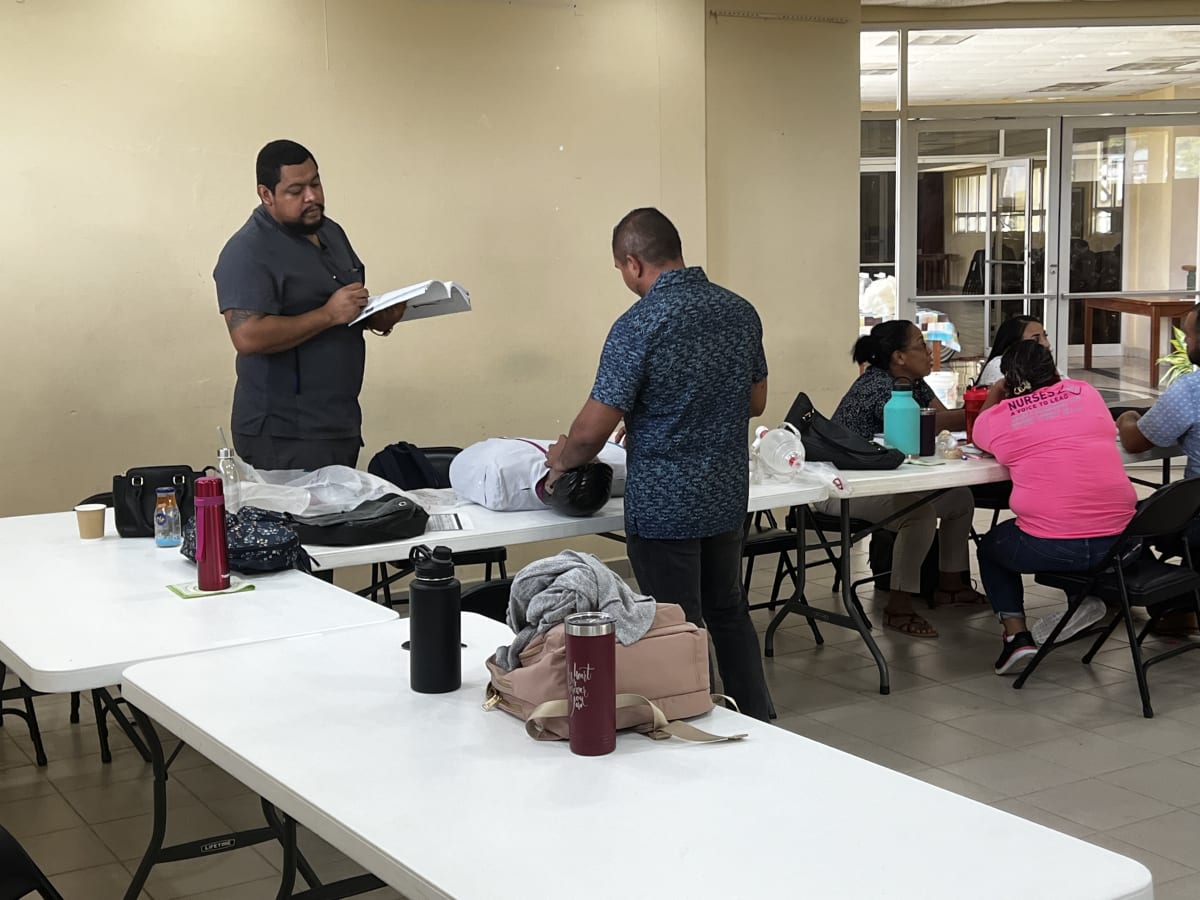
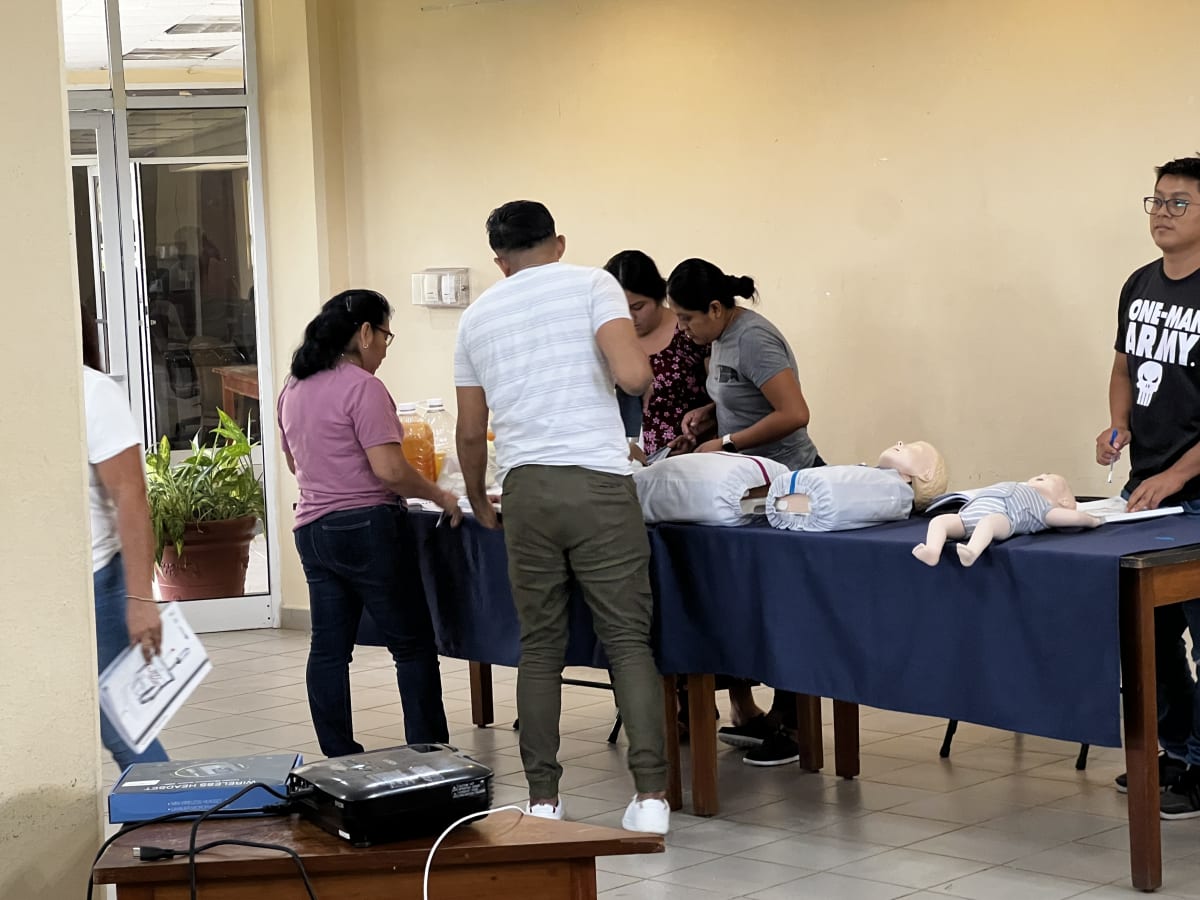



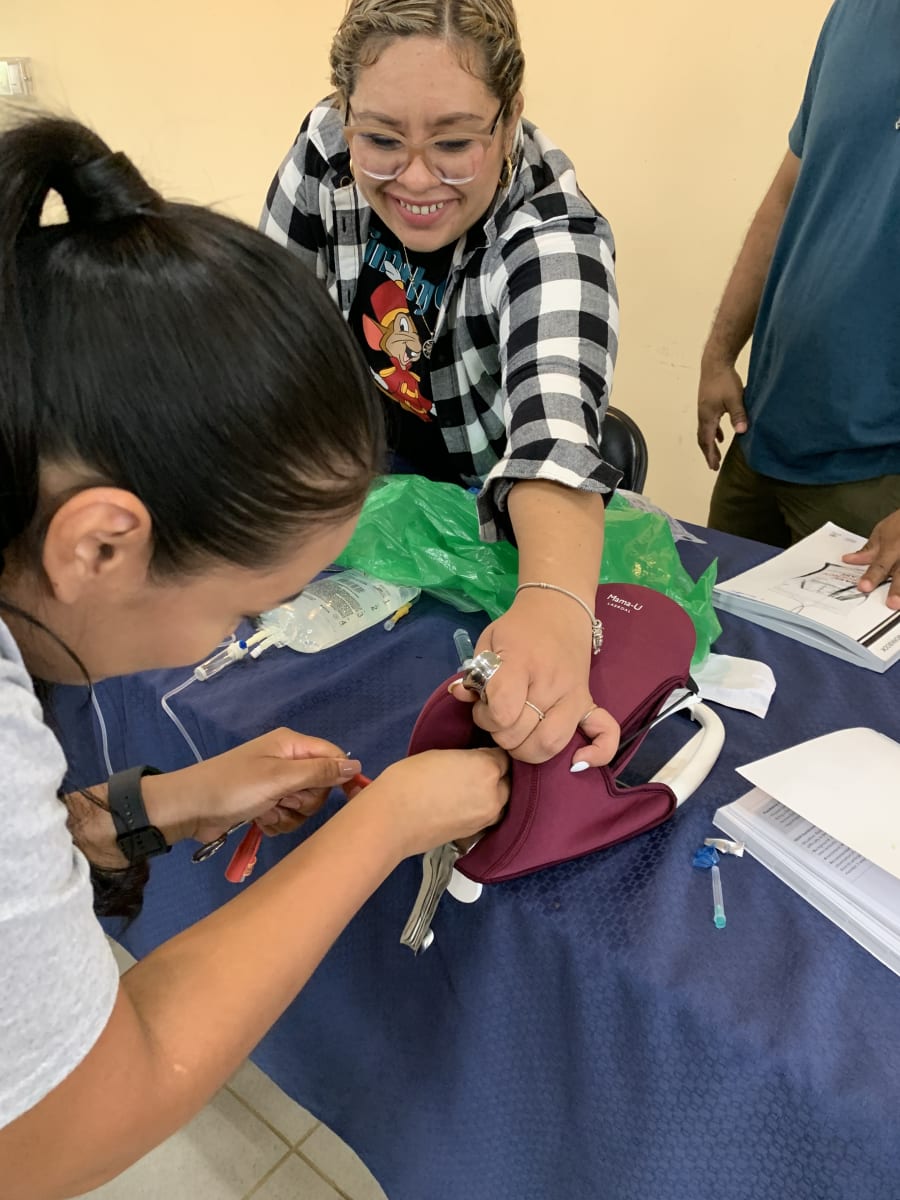

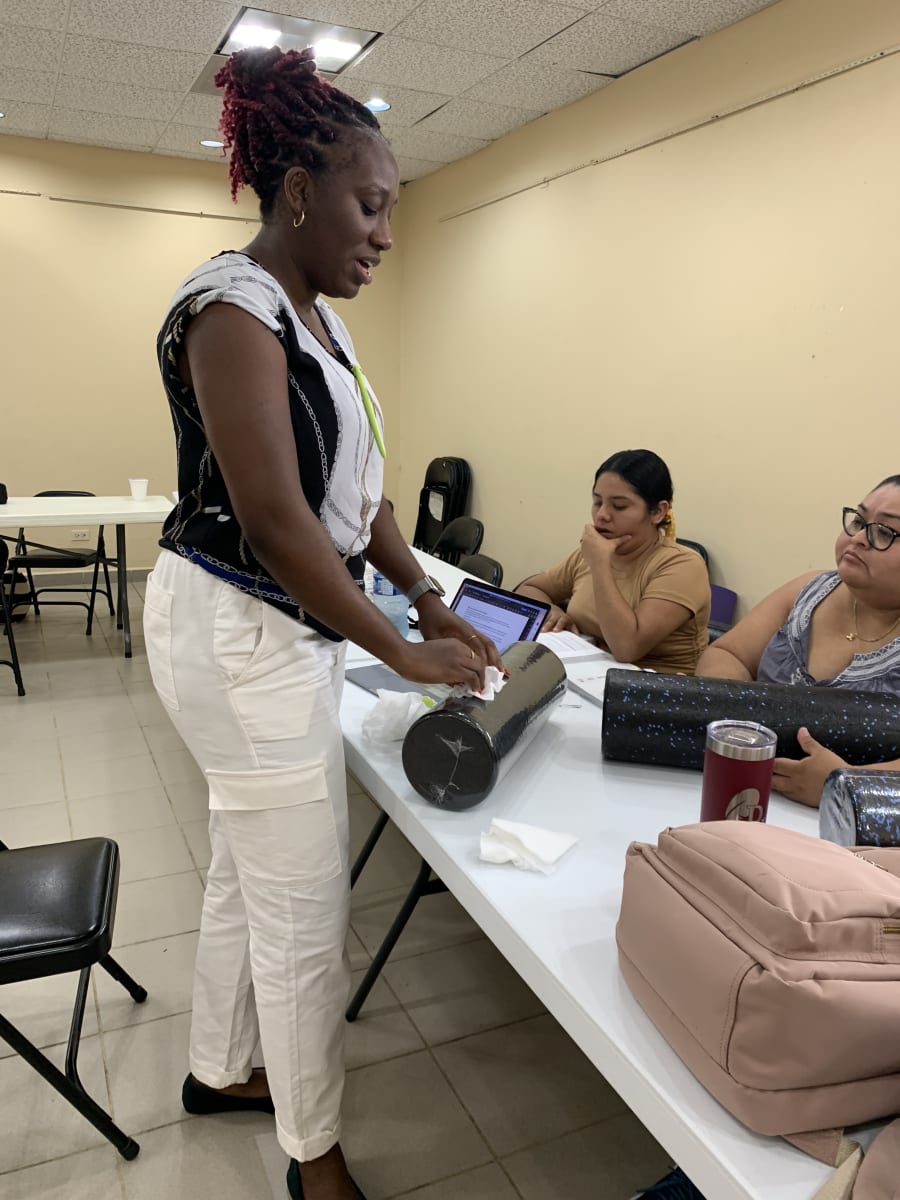

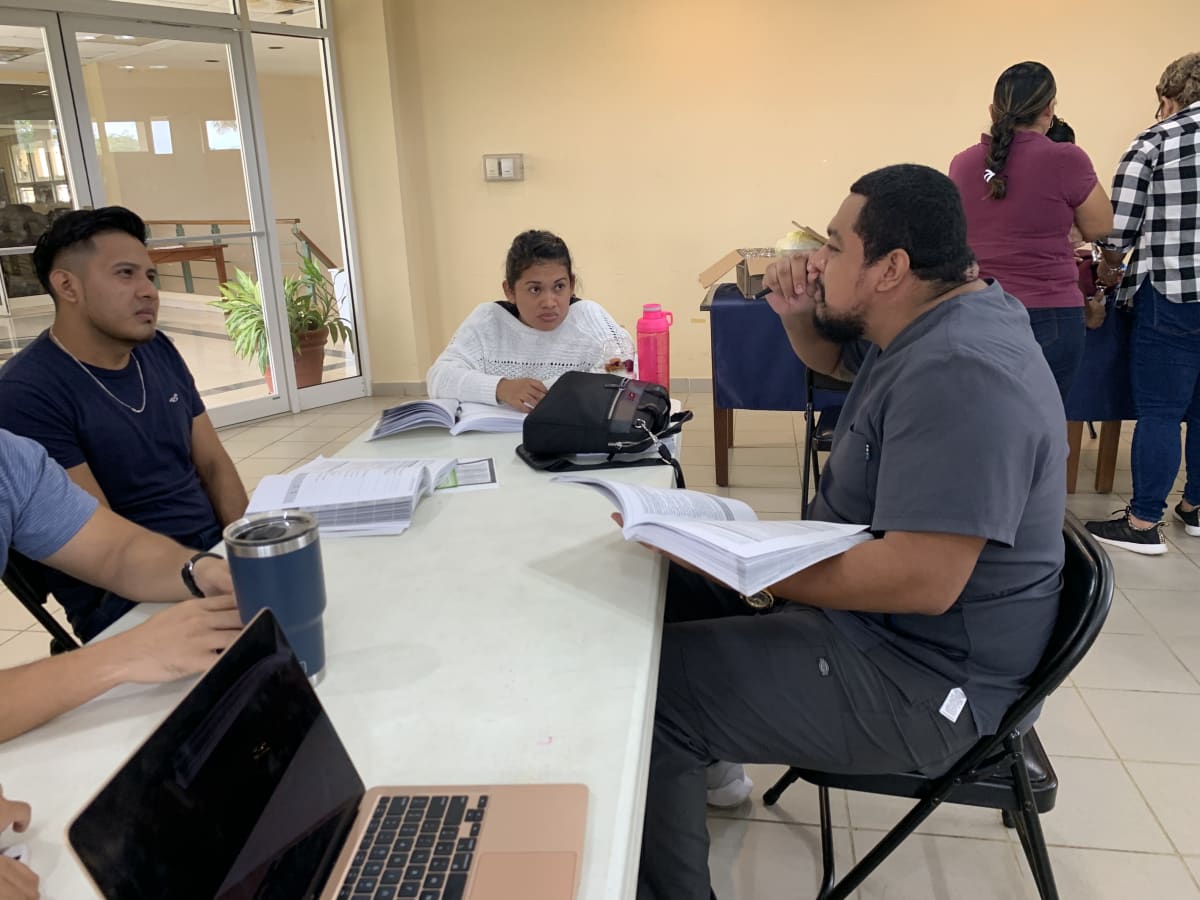

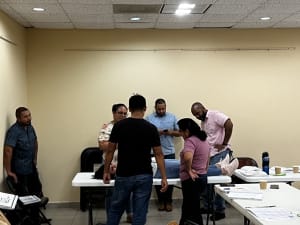











We gathered a little less than 20 nurses, medical officers, specialists, and other health care workers from the Western Region of Belize and trained them in Basic Emergency Care (BEC). This included the trauma ABCDEs (airway, breathing, circulation, disability, exposure), hemorrhage control, immobilization, and other essential emergency clinical skills. Some of these providers had already taken part in World Health Organization’s Emergency Triage Assessment and Treatment (ETAT) course which shows the country’s commitment in training and furthering the education of its health care providers. These trainees were highly motivated and excited about the learning material.
Among the trainers were two nurses and two doctors from Belize who previously took the BEC course and were motivated in training their peers. After the training, everyone passed the post-course assessment successfully and we were able to identify future trainers. Efforts continue for a 100% training rate in the country and a formal assessment that efforts have in fact decreased morbidity and mortality in the country. As of now, we are able to support that the training has improved provider confidence in managing emergency conditions.